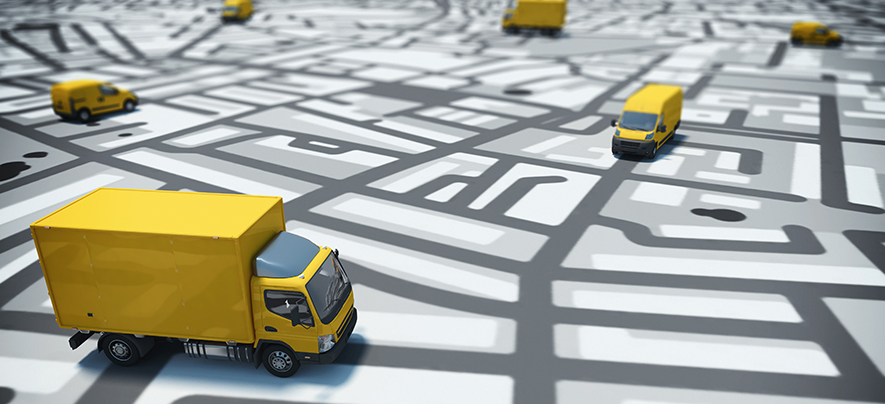Importance of vehicle tracking solutions

Digital & Technology
441 week ago — 6 min read
Today, we are seeing lots of vehicles on the roads. They could be of different types like – personal, government, company provided, school bus, luggage or goods carrying trucks, rented vehicles etc. Each one will have its own reason for it being tracked. But security is the common & most important reason why vehicle tracking is becoming imperative. In addition to just tracking, if we can add some more physical parameter measurements, like fuel, temperature, pressure, speed, etc., depending on the requirement, it will help in automating several things & can also avoid fraud in many cases. Here I would like to discuss a couple of domains, elaborate on the issues faced by them, and share some possible solutions.
What is tracking & why is it so important?
We can define tracking as ‘getting continuous information of where a particular object is’. It could be a small thing at home, an employee in a big campus, a server in a data center or a vehicle on the road.
For security reasons, ease of search or for providing any assistance, vehicle tracking is becoming increasingly important. Also besides determining the current location, it may be required to know how a vehicle has reached its destination.
How can we track?
There are different tracking technologies used based on the range & the object that is being tracked. For most tracking requirements, we use RFID & GPS/GPRS technologies.
Let us see few case studies where these technologies are extremely useful.
Case 1 (School vehicles & Company provided transport)
Nowadays, most schools have implemented GPS devices on their school vans or buses to track where the vehicle is & RFID (Radio-Frequency Identification) for student/teacher attendance.
By putting proper GPS devices in the school vehicles, we can:
a) Track where the vehicle is
b) Inform the students/parents on the exact time of arrival to their pickup points
c) Monitor how the driver is driving the vehicle
By adding few more electronic devices, we can even see the fuel state, check if the driver is inebriated , monitor if the driver is following the correct route or not, who all are in the bus, noise level inside the vehicle, temperature inside the vehicle etc.
Most of the times, this information seems not so important. But, in case of any unforeseen event, lack of such data will be a major block in either helping the victims or in further investigation.
A properly designed RFID based attendance system will help in instantaneously informing the parents whether their children are in the class or not. It also helps in knowing how much time a teacher spends in the classroom.
If the question is, ‘can’t I live without these’, the answer is always ‘yes’. Without these tracking devices, most of us have completed our schooling. But, we have seen more & more unforeseen events happening due to a lapse of security and rising safety concerns. So, now it is becoming imperative to have these things in place.
The same is the case with company provided employee transport. The management should know where exactly the employee boarded or de-boarded the vehicle, whether the employee is using the specified vehicle or going by a different route vehicle etc. Here the safety & security concerns will play a major role as these transport facilities will be used round the clock. So the systems that we put in place should be capable of alerting even a small deviation from the standard operating process.
Case 2 (City Bus Services)
Imagine we are standing at a bus stop waiting for a particular bus. Usually, we just go to the stop & start waiting. We will not be aware of the exact arrival time of the buses. If there is a system to display the time of arrival of different buses (that come in the next 20-30 minutes) to that stop, it will be of great help. Based on the time, we can either decide to wait, search for alternative routes or alternative mode to go to our desired location. This can only be done by implementing an advanced GPS systems in all the buses, getting the location & route data continuously, processing them properly & displaying it accurately in all stops. This saves time for the commuters. In some cities, this is already implemented. But in some places, lack of accuracy is preventing users from relying on it.
Case 3 (Mines)
There are usually thousands of vehicles in each mine. The issues faced by them are somewhat different from the above cases.
a) Nobody will have enough information on which vehicle is used for what, or whether all the vehicles being used optimally or not.
b) No information on who is driving which vehicle and whether they are authorised to drive that vehicle.
c) Entry & exit time of all the vehicles is difficult to track.
d) Lack of information on whether vehicles are going to their specified locations or not.
e) Lack of information if vehicle is going to the target location (after loading) as per the prescribed route and if there is any loading / unloading happening in between etc.
If we see the list of these issues, it is a different set all together. But still, by properly designing an RFID & GPS/GPRS combined solution, it is possible to address all these issues in a cost-effective way. In all of the above cases, the hardware or technology used will be almost the same.
Conclusion
Through the above case studies we can conclude that for almost all logistics related concerns, we can build the required tools keeping ‘tracking’ at the core and develop software solutions around that.
To know more, link with me by clicking on the ‘Invite’ button on my eBiz Card.
Disclaimer: The views and opinions expressed in this article are those of the author and do not necessarily reflect the views, official policy or position of GlobalLinker.
Posted by
Shashank M GHave over 20 years of IT experience in various companies and worked in different positions. Now serving as a C. T. O in Samartha Infosolutions Pvt Ltd and as C. E. O in...
Network with SMEs mentioned in this article
View Shashank 's profile
Other articles written by Shashank M G
The future of cattle feeding: Hydroponic fodder
408 week ago
How I reduced my office electricity bill
437 week ago
Most read this week
Trending
Ecommerce 10 hours ago













Comments (1)
Share this content
Please login or Register to join the discussion